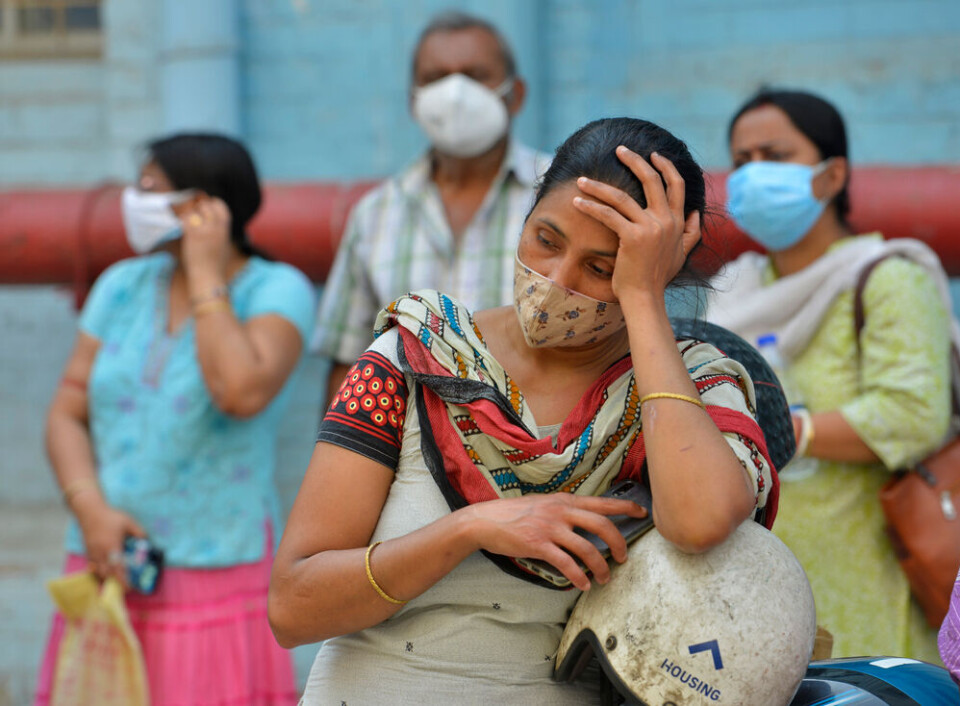-
Loire Valley Sancerre vineyard boosted by Taylor Swift documentary cameo
Disney+ documentary puts family vineyard in the international spotlight
-
39 bombs wash up on Gironde beach following World War Two bunker collapse
Shells were defused by experts but prefects warn others may remain
-
French airports request EES rollout suspension this summer
Risk of congestion feared if April full deployment of system for all eligible passengers takes place
Why France is spared the 'black fungus' maiming Covid victims in India
The fungus spreading in the subcontinent has been linked to the use of steroids to treat Covid-19 and was already in France before the pandemic. Its spread here is highly unlikely

It has been called another ‘epidemic’: a potentially lethal black fungus that infects the nose, jaw, and brain of Covid-19 patients spreading rapidly in India. But could it spread in the same way in France?
The ‘mushroom’ or fungus, otherwise known as mucormycosis, is linked to the use of steroids to treat severe Covid-19 cases. It is sometimes wrongly termed ‘black’ fungus, but this is a misnomer, as the fungus itself is not black. Rather, it is the infected tissue that turns black as the fungus kills it.
Steroids help reduce lung inflammation, but also lower immunity and increase blood sugar levels. This combination of factors can cause the mucormycosis infection to take hold.
It can cause necrosis and infection of the skin, nose and facial bones, intestines, and lungs; bleeding, fever, and shortness of breath. A study published in scientific journal Clinical Infectious Diseases found that it can have a mortality rate as high as 54%.
So far, the fungus has killed more than 4,200 people in India, and affected 45,000. This means the mortality rate in India as yet is much lower, at less than 10%.
Could it happen in France?
The short answer is no.
There have been seven cases of the issue in France since the start of the pandemic, and four in 2021, said Professor Olivier Lortholary, deputy director of the national fungus reference centre le Centre national de référence des mycoses invasives et antifongiques and Institut Pasteur researcher, to FranceInfo.
Yet, the infection was already known and present in France since before Covid-19, and affects an average of 50 people per year.
France has the necessary means to treat the infection and can stop it from spreading out of control, and the infection is far more likely to be caught quickly in France.
This is not always the case in India. Lower hygiene conditions seen in some healthcare centres may also be a factor. Similarly, the use of steroids to treat Covid-19 is much more widespread in India, said Professor Lortholary.
Yet France is still warned to be alert.
People who have diabetes, or who are immunocompromised, who get Covid are especially vulnerable. Even once recovered, they should avoid possible sources of infection in the following weeks, especially outdoors such as when “gardening or using compost”, said Professor Lortholary.
But the specialist said that the black fungus “would never spread anywhere near as much in France on the scale that we are seeing in India”, and “it’s important not to worry people too much about this”.
He said: “Numerous organisational and cultural factors mean that we won’t see comparable numbers. Things are under control.”
Related stories
Occitanie: Alert as Covid hospital admissions increase tenfold in July
Covid France: Pressure mounts on hospitals; most patients unvaccinated
Covid France: 6% positive tests are from fully vaccinated people
























